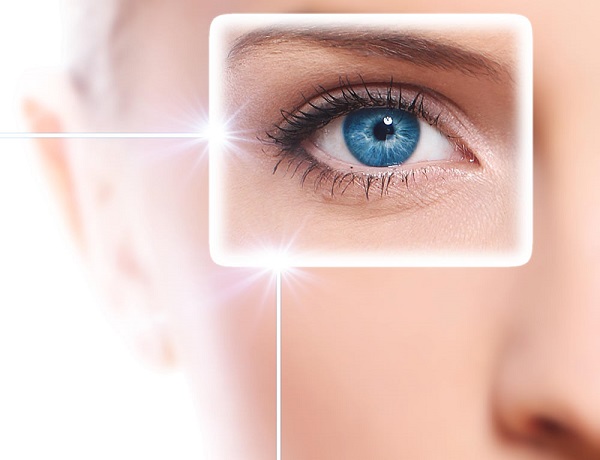The Mechanism Of Β-Carotene On Eye Vision
2024-01-30 14:14:11
What is the Mechanism of β-Carotene's Effect on the Eyes?
Pure beta Carotene powder helps maintain the normal growth and differentiation of all cells in the body, moisturizes the conjunctiva, and repairs the tear film. Importantly, beta-Carotene is a crucial ingredient in the synthesis of rhodopsin in the retina. Rhodopsin is secreted by rod cells in low-light conditions, stimulating nerves to create vision, and allowing us to see objects clearly in dim light. It is an essential photosensitive substance for eye vision and plays a key role in various visual problems such as myopia and amblyopia.

In fact, there are many similarities between the principles of camera photography and our visual perception. For instance, our cornea and crystalline lens combination is equivalent to a camera lens, with the cornea acting as the outer layer of the lens, accounting for more than 70% of the eye's overall refractive power. The conjunctiva can be likened to the camera lens cover. The retina, which we are familiar with, corresponds to the film (photographic film), and rhodopsin corresponds to the light-sensitive imaging substance silver iodide. These are all components and substances involved in visual imaging. When β-Carotene is deficient, it can lead to blurred vision, and decreased visual acuity, and subsequently result in refractive errors such as myopia and astigmatism. Deficiency in infancy and childhood can even lead to amblyopia.
β-Carotene Deficiency in the Body Can Cause Damage to Mucosal Epithelium and Decrease or Disappearance of Goblet Cells, Leading to Dry Eye Syndrome.
β-Carotene is essential for maintaining the integrity of mucous membranes, especially the conjunctiva and cornea. Research has shown that a deficiency of β-Carotene in the body can lead to damage to mucosal epithelium and a decrease or disappearance of goblet cells, resulting in dry eye syndrome. β-Carotene is the only substance capable of reversing the basic histological changes of dry eye syndrome—squamous metaplasia. In vitro experiments have shown that β-Carotene can change the differentiation status of epithelial tissues. When β-Carotene is deficient, non-keratinized epithelial cells can transform into keratinized squamous epithelium (squamous metaplasia). Conversely, excess β-Carotene in a cultured environment can convert squamous epithelium into secretory epithelium (mucinous metaplasia).
Studies conducted by Tseng and others have shown that treating dry eye syndrome of various causes with Pure beta Carotene powder resulted in improvements in symptoms and visual acuity in all patients. Tear secretion increased, and they found that squamous metaplasia, which existed before treatment, could be reversed.

Mori observed 1511 cases of dry eye syndrome and 116 cases of keratoconjunctivitis sicca in Japan and found significant improvement with β-Carotene treatment. Fawzi studied 28,753 participants and found that β-Carotene had a significant therapeutic effect on dry eye syndrome, reducing the risk of the condition.
Is β-Carotene Effective for Myopia?
We know that inadequate intake of β-Carotene is a major factor in childhood myopia. So, is supplementing β-Carotene effective? How should we supplement it for children? With the development of modern agriculture, naturally grown crops are becoming scarcer. It is increasingly unlikely to obtain sufficient β-Carotene from daily food intake. Therefore, additional supplementation is necessary.
Clinical studies by ophthalmologists have shown that supplementing β-Carotene is a highly effective method for promoting children's eye development and preventing and improving myopia. Statistical data shows that long-term adequate supplementation of β-Carotene can reduce the incidence of myopia, restore visual acuity in pseudomyopia, and control the degree of myopia in patients with true myopia. It also has a good effect on childhood amblyopia. The younger the age, the better the effect.
How to Choose Suitable β-Carotene for Eye Care in Children?

Pure beta Carotene powder for eye care in children has two main characteristics: it must be suitable for children and intended for eye care. This determines that it differs from ordinary products in terms of dosage form, absorption, dosage, safety, and other aspects. Therefore, when choosing a product, attention should be paid to the following:
1. Check whether the product is approved by the national regulatory authority. Regulated products are subject to strict national supervision throughout the development, production, and sales process, ensuring product quality, safety, and efficacy.
2. Understand whether the product is derived from synthetic or natural sources. Naturally extracted β-Carotene is not only highly active but also safer.
3. Determine whether the product is suitable for children and intended for eye care. Different development goals lead to differences in prescription processes and dosages. This can be observed from the recommended age group and health effects stated in the product instructions. Products labeled for adults are not suitable for children, and those indicating effects such as anti-aging, anti-mutation, or others are not suitable for eye care.
4. Consider the dosage form. Since β-Carotene is lipophilic, it is best to choose a product with a "water-in-oil" technology for better absorption. Softgel capsules are generally a good choice, and smaller-sized capsules are preferred for the convenience of children's consumption.
If you have any inquiries or needs about our products, please feel free to contact us at sales@sxytorganic.com, and we will reply to you as soon as possible.
_1737093401309.png)
